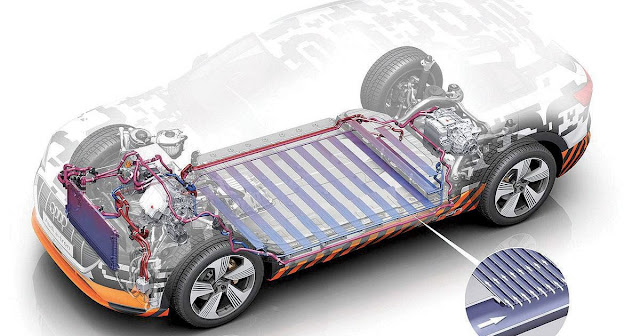Revolutionizing Sustainable Mobility: The Critical Role of Automotive Thermal Management
As the world moves towards sustainable mobility, the role of automotive thermal management has become increasingly critical. Thermal management systems play a key role in optimizing energy efficiency, reducing emissions, and ensuring reliable vehicle operation in electric and hybrid vehicles. Advanced thermal management technologies, such as liquid-cooled batteries and waste heat recovery systems, are revolutionizing sustainable mobility. These technologies enable vehicles to operate more efficiently, reduce energy consumption and emissions, and extend the life of critical components.
One of the key challenges in electric and hybrid vehicles is managing battery temperatures. High temperatures can reduce battery life and performance, while low temperatures can decrease efficiency and range. Liquid-cooled batteries can help to maintain optimal operating temperatures, improve battery life and performance, and ensure reliable vehicle operation. Another area where thermal management is critical in sustainable mobility is in waste heat recovery systems. These systems capture waste heat generated by the vehicle's engine or brakes and convert it into usable energy, reducing energy consumption and emissions. By utilizing waste heat recovery systems, vehicles can become more energy-efficient and reduce their impact on the environment.
The global Automotive Thermal Management Market size is estimated to be valued at US$ 89.2 Billion in 2022 and is expected to exhibit a CAGR of 5.6% between 2022 and 2030.
Additionally, thermal management plays a critical role in the design of electric and hybrid vehicle powertrains. Efficient cooling of electric motors and power electronics is essential for reliable operation and optimal performance. Thermal management systems can help to ensure that critical components operate within safe temperature ranges, reducing the risk of damage and improving vehicle reliability. As the demand for sustainable mobility grows, automotive thermal management will continue to play a critical role in reducing energy consumption and emissions. The development of new and innovative thermal management technologies is essential for enabling the widespread adoption of electric and hybrid vehicles. One emerging trend in automotive management is the use of phase change materials (PCMs). These materials have the ability to absorb and release large amounts of thermal energy, making them ideal for use in thermal management systems. By incorporating PCMs into thermal management systems, vehicles can improve energy efficiency and reduce emissions.
Another area of innovation in automotive thermal management market is the use of advanced control systems. These systems can optimize thermal management by adjusting the cooling and heating of different components based on driving conditions and vehicle performance. By utilizing advanced control systems, vehicles can further improve energy efficiency and reduce emissions. Thermal management also plays a critical role in the development of autonomous vehicles. Autonomous vehicles generate significant amounts of heat due to their high processing power and constant operation. Effective thermal management systems are essential for ensuring reliable operation and preventing damage to critical components. In addition to electric and hybrid vehicles, thermal management is also critical in other areas of sustainable mobility, such as hydrogen fuel cell vehicles. Effective thermal management is essential for ensuring the safe and efficient operation of fuel cells, which generate large amounts of heat during operation.




Comments
Post a Comment